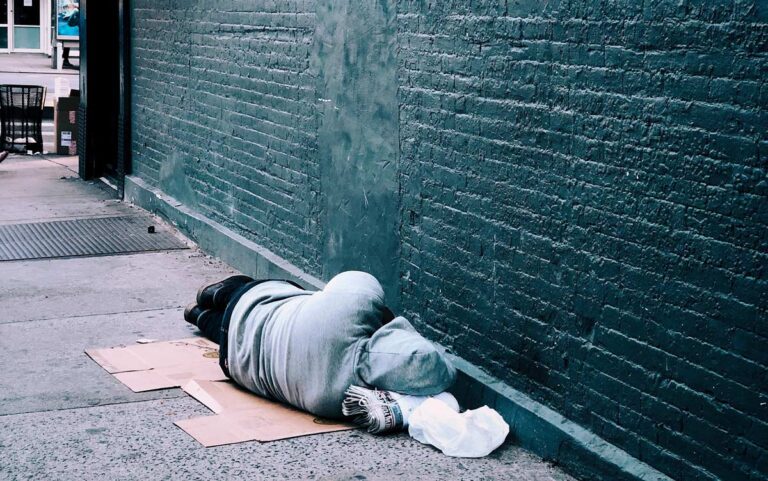Inside Biden’s plan to cut US homelessness by 45 per cent through affordable cities
With around half a million individuals in the US living in a state of homelessness, it’s a social issue that desperately needs addressing—with the Biden administration at the forefront of this goal. The ambitious effort-dubbed the ‘House America’ initiative, led by the Department of Housing and Urban Development, is aiming to help state, local and tribal governments curb homelessness in their areas.
And it’s not the first time the government has stepped up to help America in a crisis. The American Rescue Plan Act, which was passed in March last year—as the US was feeling the first waves of the pandemic arriving from abroad—left states and localities with an unprecedented pile of federal cash. Written in the legislation was to set aside $10 billion to prevent homelessness as American citizens across the country saw their livelihoods in jeopardy from lockdowns and economic strain. To date, this was the largest amount of cash the US federal administration had ever spent in an attempt to eradicate homelessness. By comparison, the annual spending on homelessness by the Departments of Housing and Urban Development was just $3 billion a year. The plan announced earlier this week, 20 September 2021, sets a coordinated agenda to help them use the spending the most effectively.
So, what’s the plan?
Even before the pandemic tore its way through the US’ economic heart, homelessness in the country had been on the rise. Estimates show that at the beginning of 2020, 580,466 people were homeless, up 2.2 per cent from the previous year. The cities at the epicentre of this new initiative are also the same cities that have seen both homelessness rates and house prices increase: Austin, Los Angeles and Oakland.
Security of the Housing and Urban Development secretary, Marcia L. Fudge, described the new scheme as “an all-hand-on-deck effort” to address the “homeless crisis” across the nation. The scheme will address the immediate problem by moving 100,000 people—roughly 20 per cent of the country’s unsheltered population—into supportive housing. It was announced that the scheme would then attempt to break the vicious cycle of homelessness by starting the construction of new affordable housing in the cities listed above by the end of 2022. The scheme will also advise authorities to use the money towards “housing first” strategies: prioritising people getting permanent shelter before addressing other needs such as health or economic issues. According to estimates reported by Quartz, if successful the investment—in combination with other pandemic-driven relief packages—could reduce the number of homeless households by an impressive (but much needed) 45 per cent.
Creating affording cities for the long-term
When state, local and tribal governments were given a sizeable sum of $350 billion in federal funds allocated by the American Rescue Plan in March 2020, it was so much money local authorities struggled to find meaningful ways to spend it right away—even after bailing out hospitals, transit systems and public services crippled by the pandemic. For homeless assistance, $5 billion was spent on emergency housing vouchers and another $5 billion on HOME grants (a programme designed to create affordable housing).
As the country begins to slowly reopen, the goal now is to target spendings more wisely. And by that, there must be a rhetorical shift of what the target actually is. “On one hand it’s a rhetorical commitment, but on the other hand, changing the rhetoric is the key to changing our approach to the problem. This effort is trying to look at the resources that Congress allocated and say, ‘let’s set some goals, to make sure you’re using it in effective ways, not in ways that are criminalizing homelessness and making the problem worse,” Eric Tars, legal director at the National Homelessness Law Center, said to Quartz.
If House America does succeed in creating thousands of new affordable housing across the very cities that need it most, it would drastically benefit the wellbeing of countless US citizens who have slipped through the net and are currently facing hardship. Moreover, a successful programme on such a scale could influence wider American politics for the better. As noted in the Quartz report, Tars believes it could bring back a social safety net of policies not seen in decades. It’s clear this new initiative is a step in the right direction, a push forward on part of federal actors, to resolve the rising issue of homelessness in the US. However, whether it is enough to meet the immense need is the ten-billion-dollar question.






